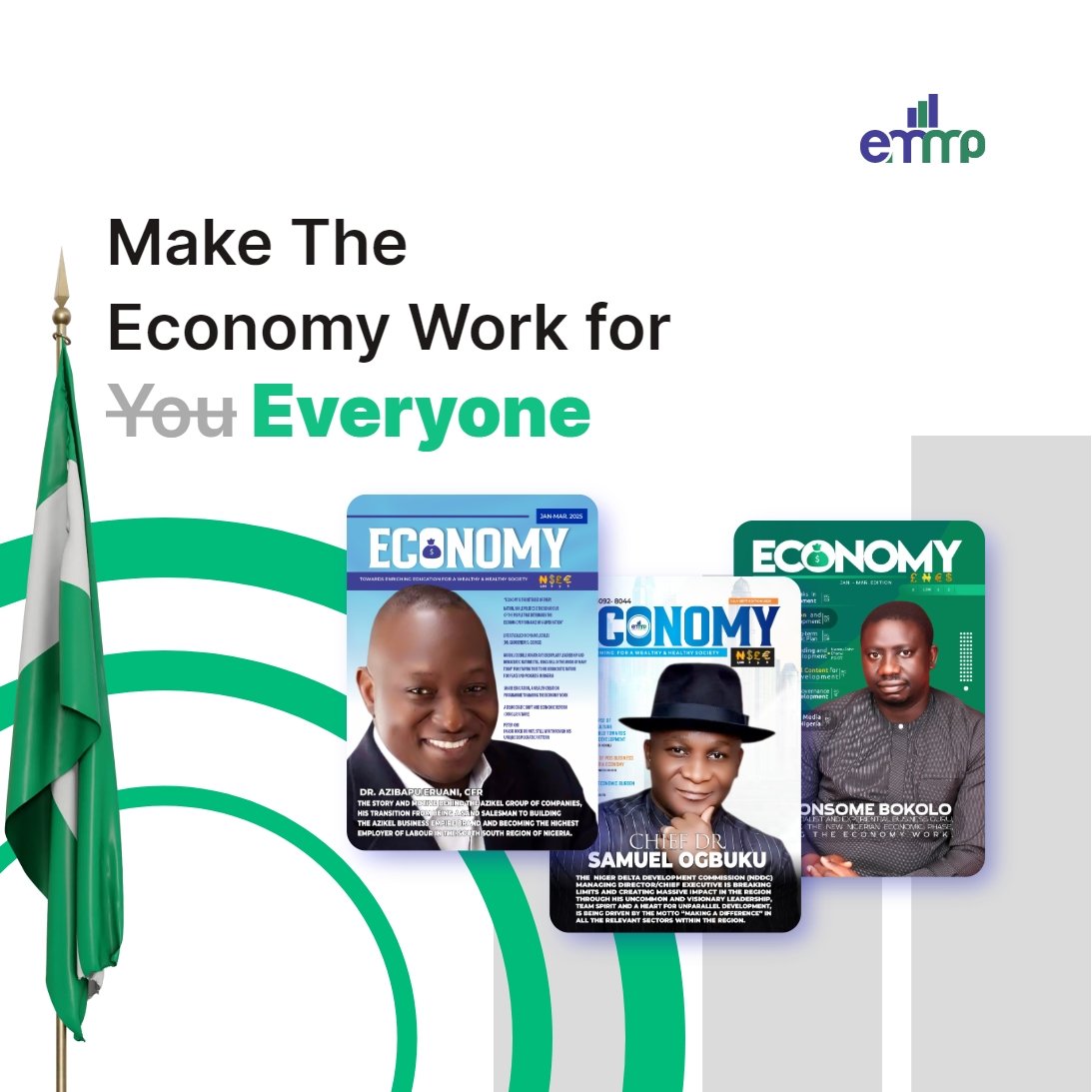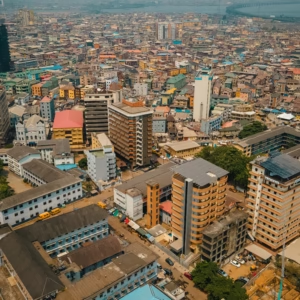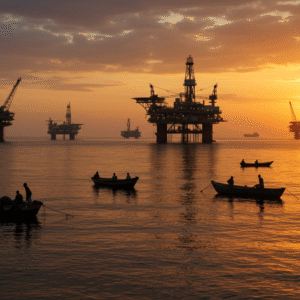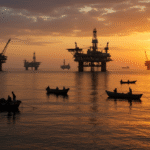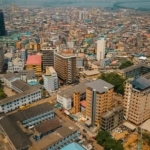Key Points:
-
Corruption
Billions lost yearly to political corruption.
-
Godfatherism
Wealthy sponsors control political candidates.
-
Hidden Wealth
Politicians stash public funds abroad.
-
Election Manipulation
Vote buying and rigging weaken democracy.
The Opaque World of Nigerian Politics
Politics in Nigeria is often portrayed as a vibrant, democratic process, complete with spirited campaigns, eloquent speeches, and grand promises of a better tomorrow. However, beneath this polished surface lies a far more intricate and often unsettling reality. It’s a complex web woven with threads of power struggles, strategic alliances, and veiled deals—a sophisticated game played by a select few, where the stakes are incredibly high. Beyond the public eye, behind closed doors and hushed conversations, lie secrets that many politicians would prefer Nigerians never uncover.
These aren’t just abstract political maneuvers; they are the invisible forces that profoundly shape the lives of every citizen in Port Harcourt, Lagos, Kano, and beyond. These secrets dictate everything from the cost of your daily bread to the stability of the Naira, influencing the very fabric of national development and individual prosperity. In this explosive article, we will pull back the curtain on this shadowy world, exposing the Top 7 Secrets Nigerian Politicians Don’t Want You to Discover. Prepare to have your understanding of power, governance, and accountability in Nigeria fundamentally reshaped.
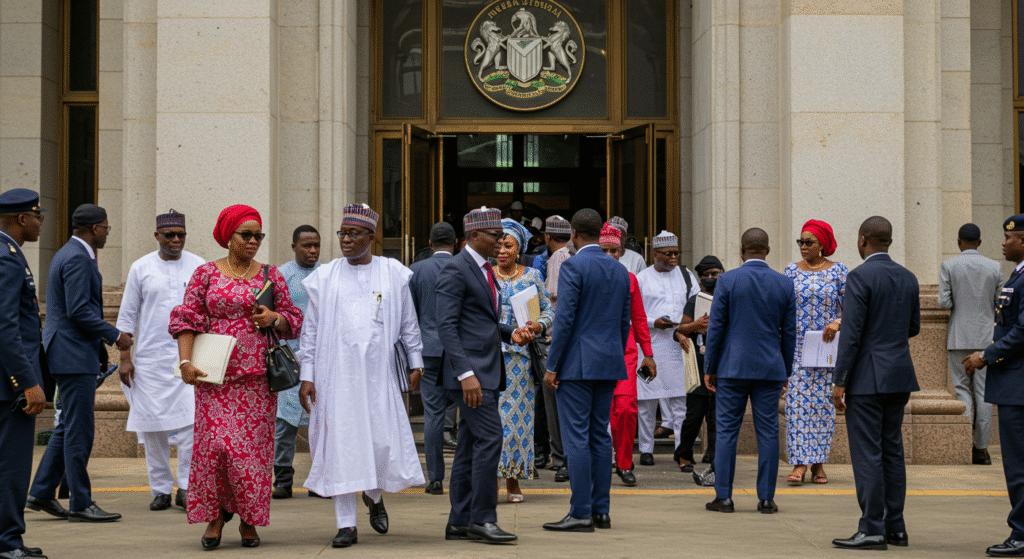
Politics Is the Fastest Road to Wealth in Nigeria
For millions of hardworking Nigerians, achieving financial stability is a relentless uphill battle. Yet, for a select few, the path to immense wealth seems astonishingly clear and rapid: politics. In Nigeria, public office has, for many, ceased to be an avenue for service and transformed into a lucrative enterprise. According to a damning report by Transparency International, corruption continues to drain the Nigerian economy of an estimated $18 billion annually through illicit practices. This isn’t just about petty bribery; it’s about systemic leakage where politicians often inflate contracts for public projects, mismanage or divert public funds with impunity, and award multi-million-dollar deals to favored cronies and shell companies. The public service, which should be a vehicle for national development, has, in many instances, become a personal ATM for those in power. A stark example of this disparity is the remuneration package of Nigerian lawmakers. The emoluments and allowances of an average senator or representative far exceed those of their counterparts in significantly wealthier, more developed nations, drawing widespread criticism and fueling public cynicism. This makes political office, rather than innovation or entrepreneurship, the most direct and least scrutinized route to unimaginable riches, perpetuating a cycle of graft and undermining genuine economic progress.
Campaign Promises Are Rarely Meant to Be Kept
As election season heats up across Nigeria, the air becomes thick with grand promises: millions of jobs, 24/7 electricity, state-of-the-art infrastructure, and a stronger Naira. These pledges, delivered with fervent conviction, ignite hope among a populace desperate for change. However, the bitter truth, often whispered but rarely acknowledged by those in power, is that many of these promises are little more than sophisticated marketing tools. They are strategically crafted narratives designed to capture votes, not concrete commitments to be fulfilled. Studies conducted by reputable organizations like the Centre for Democracy and Development (CDD) consistently reveal a stark reality: less than 20% of campaign pledges are ever substantially fulfilled once politicians assume office. The reasons are multifaceted, ranging from lack of political will and insufficient funding to genuine technical challenges. Yet, a more cynical explanation prevails: many politicians banking on short public memory and the cycle of renewed hope during the next election. This cycle of hopeful promises followed by widespread disillusionment has eroded public trust, fostering a deep sense of cynicism among the electorate who have learned to view political rhetoric with extreme skepticism.
A nation of sheep will beget a government of wolves.
Edward R. Murrow
Godfatherism Controls Who Gets Into Power
The veneer of democratic choice in Nigeria often conceals a more potent, deeply entrenched system: godfatherism. Far from being a meritocratic contest of ideas and qualifications, Nigerian politics is heavily influenced, if not outright controlled, by powerful, often shadowy, individuals known as “godfathers.” These are influential figures, typically wealthy and well-connected, who strategically sponsor candidates with significant financial backing, political machinery, and extensive networks. Their investment, however, comes with a hefty price tag. Once their protégés win elections and assume positions of power, these godfathers expect unwavering loyalty and substantial financial returns or political favors. This insidious system ensures that political positions are frequently purchased or inherited, rather than genuinely earned through competence, public service, or popular mandate. It explains the persistent presence of the same names, families, and political dynasties dominating the Nigerian political landscape for decades, effectively locking out fresh talent and genuine grassroots representation. This system profoundly undermines democratic principles, making politics an exclusive club where access is often determined by patronage rather than merit or public interest.
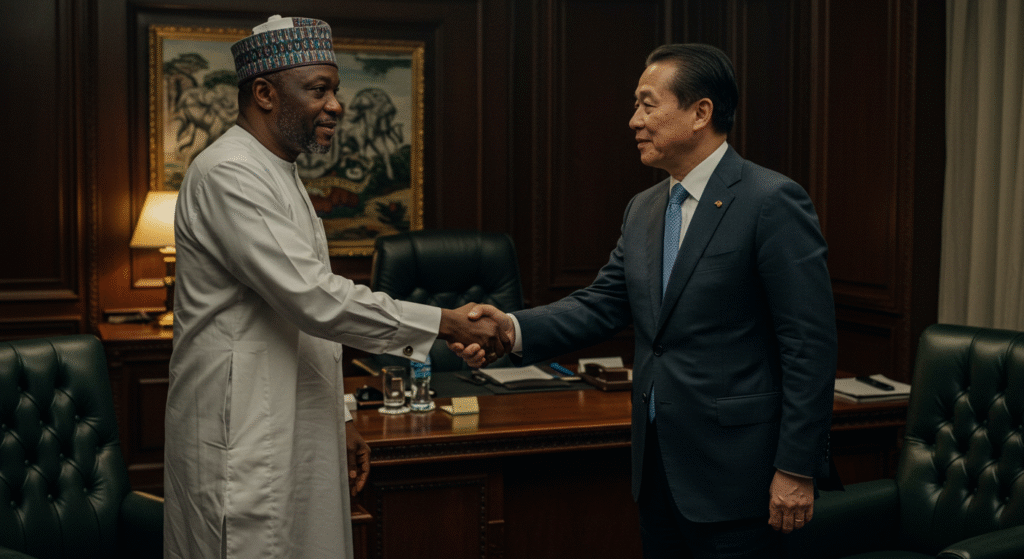
Let’s dive into these remaining sections, giving them the detailed, authoritative, and curiosity-sparking expansion they deserve, all while maintaining the premium tone of Economy Magazine.
Secret Wealth Hidden Abroad
While the majority of Nigerians grapple with the harsh realities of poverty, struggling to make ends meet in cities like Port Harcourt, a stark contrast exists in the hidden financial empires of many politicians. A deeply disturbing secret, actively suppressed by those in power, is the vast sums of wealth illicitly siphoned out of the country and stashed in foreign bank accounts and assets. According to an alarming report by Global Financial Integrity, Nigeria is estimated to lose over $15 billion annually to illicit financial flows – money laundered, embezzled, and funneled out of the economy through various clandestine means.
Leaked international investigations, such as the infamous Panama Papers and Pandora Papers, have repeatedly exposed prominent Nigerian politicians, their families, and cronies as owners of elaborate offshore accounts, shell companies, and luxurious estates in glamorous locales like Dubai, London, and the Cayman Islands. These are not just figures on a balance sheet; these are funds that were earmarked for critical public services: for building and equipping schools in rural communities, for stocking hospitals with essential medicines in Port Harcourt, for constructing vital roads and power infrastructure across the nation. The diversion of such colossal sums represents a profound betrayal of public trust and a direct impediment to Nigeria’s development, enriching a corrupt few at the expense of millions.
Nigerian Politics Exposed — The 7 Secrets Behind the Curtain
This article uncovers the hidden realities of Nigerian politics, from godfatherism to secret wealth abroad. It highlights why reforms are slow and why citizens must demand accountability.
2.8 / 5
-
Transparency in Politics
3/5 GoodPoor accountability across all levels.
-
Impact on Citizens
3/5 GoodPolicies benefit elites more than masses.
-
Economic Implications
2/5 FairBillions lost yearly through corruption.
-
Public Awareness
3/5 GoodGrowing activism and media exposure.
Pros
- In-depth look at Nigerian politics
- Exposes hidden truths rarely discussed openly
- Educates citizens on how the system works
- Encourages demand for reform
Cons
- May trigger political backlash
- Some findings may be uncomfortable for readers
- Implementation of solutions remains uncertain
